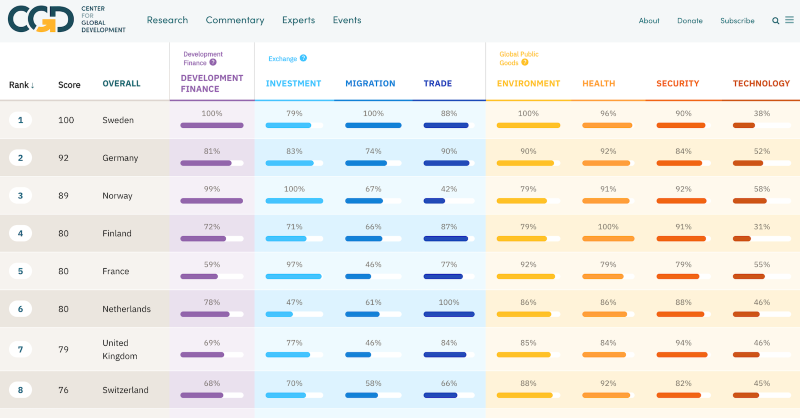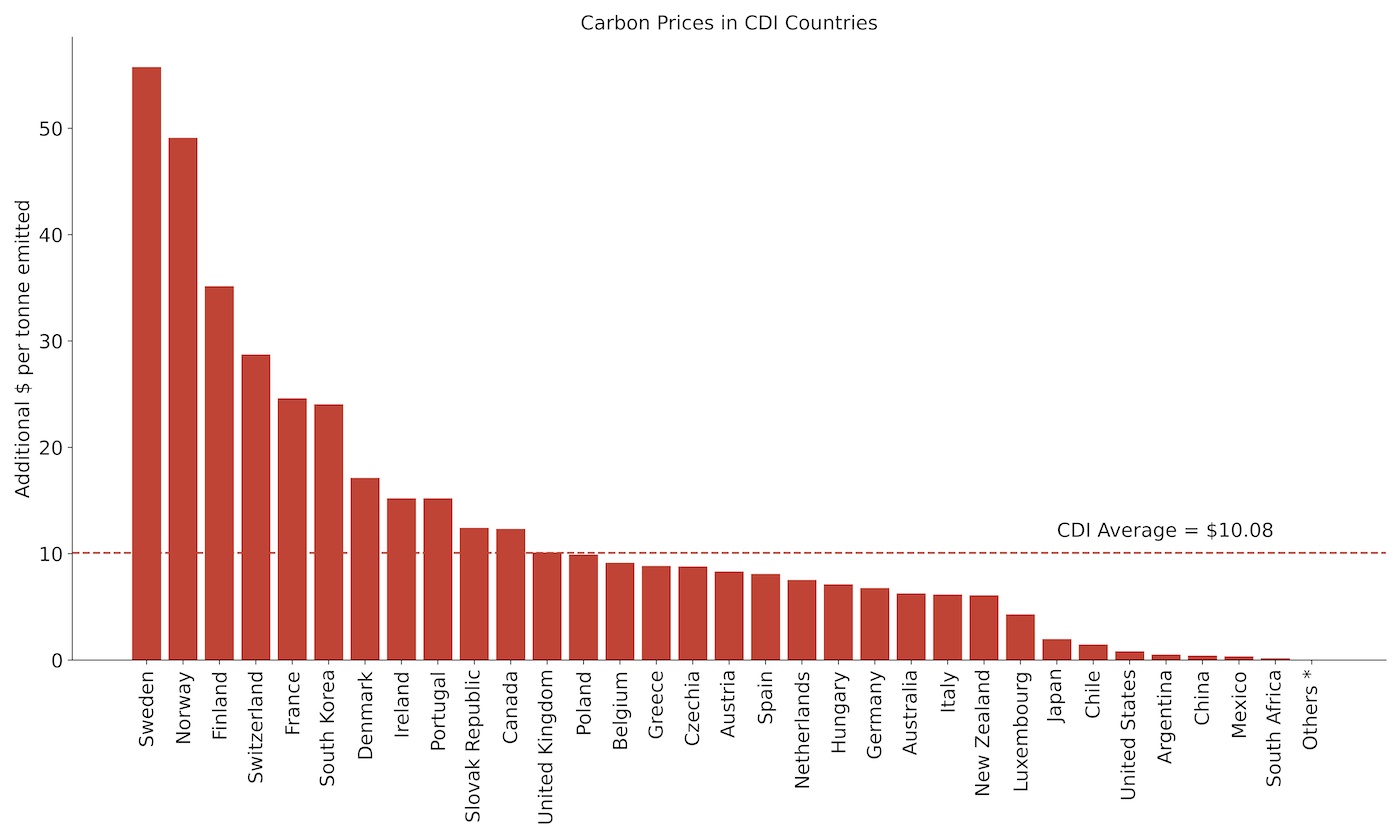May 13, 2016
The Center for Global Development has published the Commitment to Development Index (CDI) annually since 2003. The CDI assesses 27 rich countries on the effort they invest in policies that affect developing countries along seven dimensions: aid, trade, finance, migration, environment, security and technology. Recent discussion about the definition of official development assistance (ODA), donors’ allocation patterns, and new debates in light of measuring total official support to sustainable development generated questions about the continued relevance of the methodology of the aid dimension. Until 2014, the Index evaluated aid ‘effort’ by summing aid volumes from each donor and discounting those volumes according to the extent to which the aid was tied, the relative national wealth and good governance of its recipients, and the quality of how the aid was programmed. This led to perverse conclusions, including highly penalizing aid to fragile states (because they are poorly governed).
This paper explains a new approach, introduced in 2014, to calculating the CDI’s aid component. The updated methodology combines and equally weights information about donors’ aid quantity and aid quality. Aid quantity is measured by a country’s total ODA as a share of its gross national income. Aid quality is assessed using the Quality of Official Development Assistance database, jointly produced by the Center for Global Development and the Brookings Institution, and stems from information on bilateral and as well as multilateral aid allocation. The paper compares the former and the new approach and decomposes the direction and composition of changes in countries’ scores across the two methodologies. It concludes with a discussion of the difficulty of assessing the quality of aid to fragile states and future challenges in transparent, cross-country aid evaluation.
Rights & Permissions
You may use and disseminate CGD’s publications under these conditions.





